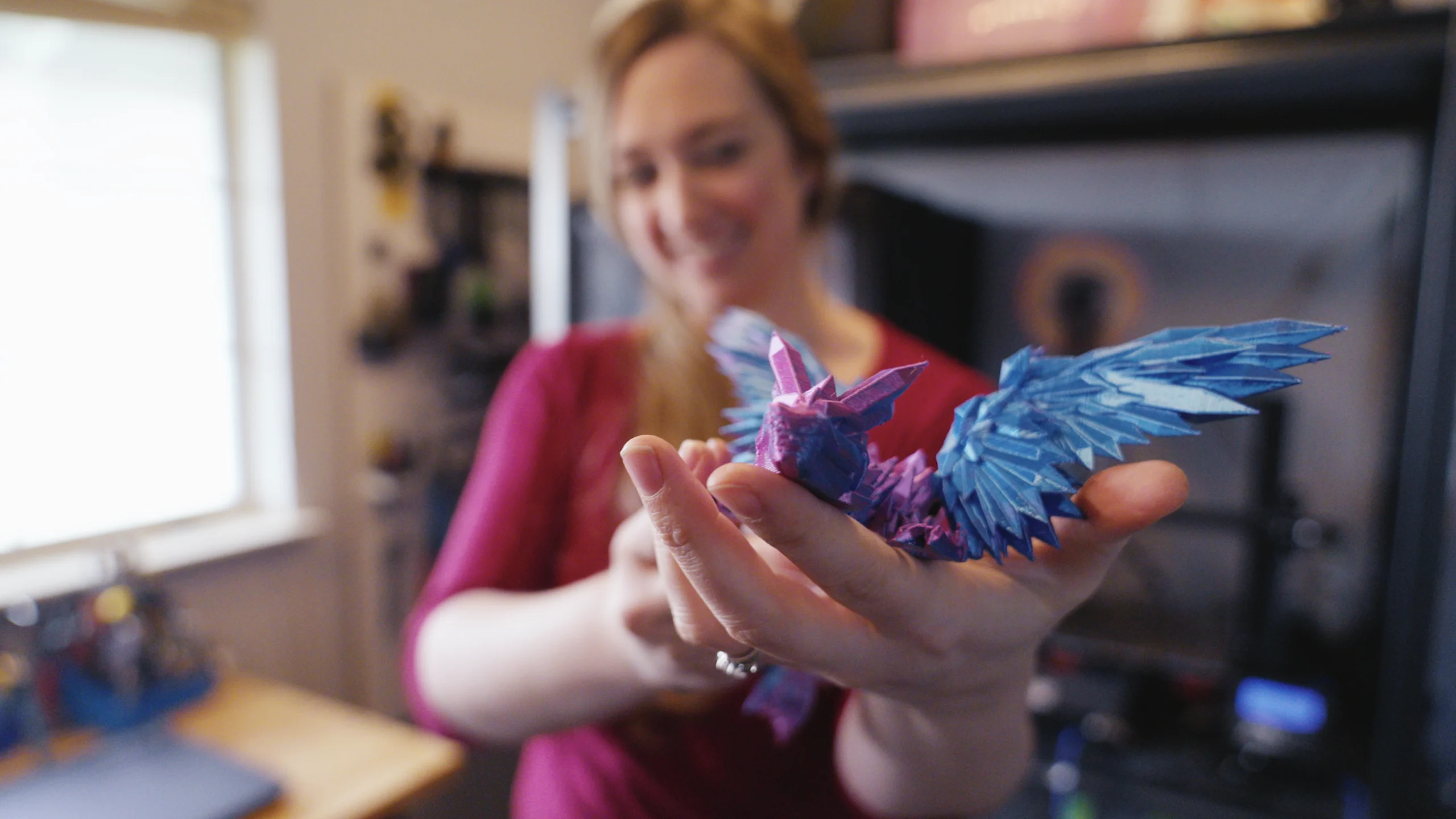At MyMiniFactory, magic meets its makers
By facilitating interactions between 3D printing creators and enthusiasts, MyMiniFactory supports a new generation of collectors and tabletop gamers.
Watch the full MyMiniFactory video on YouTube
The number of 3D printers sold worldwide more than tripled over the last three years, and MyMiniFactory has been in a perfect position to take advantage of the surge. The UK-based platform connects 3D printing creators with at-home hobbyists who print and decorate their designs.
MyMiniFactory operates a robust marketplace while also serving as a community for this massive worldwide audience, which has been growing due to digital fatigue and increased time spent at home during the pandemic.
While media coverage of 3D printing often focuses on fields like medicine and manufacturing, the technique is also widely used in tabletop gaming—a $12 billion market that includes board games and role-playing games, often with a fantasy, military, or science-fiction theme.
The MetaReverse
Tabletop gamers use MyMiniFactory to find and buy designs which allow them to fabricate a tank, an army of beastly “Saurians,” or a castle gate house. Since the result of 3D printing is an object made of a gray resin, many hobbyists also paint them in intricate detail, and even post their work back on MyMiniFactory for others to view. MyMiniFactory calls this idea the “MetaReverse”—using technology to reconnect with other people in the physical world.
"3D printing makers aren't just printing items to put on the shelf," said Matthew Weston, chief financial officer at MyMiniFactory. "They're used for social activity. It's the entire process people are passionate about."
The site launched in 2013 and today features thousands of creators selling designs to more than one million hobbyists.
“As more people started getting into 3D printing, creators realized they could be doing this full time if they were able to sell their designs,” said Weston. “Now one of our creators has a company with thirty people working for it.”
From side gig to full-time job
One of MyMiniFactory’s established creators is Alejandro Zaragosa of Cast n Play, which makes a popular series called Terrain Essentials that gamers use to build elaborate indoor worlds. Zaragosa, who lives in Mexico City, originally designed and printed his own 3D gaming pieces because he couldn’t buy them locally. Over time, other enthusiasts became interested, which led Zaragosa and his partner and girlfriend Mariana Luna to form a relationship with MyMiniFactory.
“They pitched us on having everything be centralized on a single platform,” said Zaragosa. “Customers don’t have to go from site to site to download files and find creators. And creators grow together with the site—as they release new features, we try them out and create projects that use them.”
One-click checkout boosts conversion
In 2018 MyMiniFactory launched a storefront for designers. Since then it has added features for fundraising (Pledge Manager), monthly subscriptions (Tribes), and pre-sales (FronTiers). MyMiniFactory runs these features on Stripe. In addition to Stripe Checkout, payments, and Tax, the platform has recently begun using Link by Stripe, which enables one-click checkout by autofilling customers’ payment and shipping details. MyMiniFactory expects Link will boost conversion by 7% or more.
“Being a marketplace where customers often come and buy on a regular basis, the one-click checkout experience is very useful,” said Weston. “It was a no-brainer for us to make sure Link was turned on for our customers as soon as possible.”
With 3D printing technology only becoming more versatile and affordable, MyMiniFactory’s room for growth is enormous. In early 2022 it purchased 3DC, a company which prints and ships 3D designs to buyers who don’t have their own printers. At the same time, it’s expanding beyond gaming to other genres, including mechanical engineering, toys, and jewelry, with designs like a 230-piece clock that uses a triple-axis tourbillon device, a remote control snowmobile, and a fun tabletop stacking game.
“We're helping new indie creators develop a market, but our initial community is still very closely aligned with us and sticking with us, because we have never changed,” said Weston. “We’re passionate about what they’re passionate about.”


